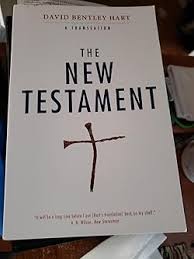Asked about the five books someone should read to get a broad view of the history of the world, the historian Walter Russell Mead said we should read the Bible, Thucydides, Xenophon, other histories from the ancient world and, oddly, The Life of Lord Marlborough by Winston Churchill.
(I have read several books by Churchill. His book about his ancestor is the best thing I have read by him, but it seemed a strange addition to a short list. )
While I love Walter Russell Mead's take on many things, I disagree with his recommendations.
First, I strongly believe that reading ancient books in translation will leave the reader with more questions than answers. Translation is interpretation, leaving many occasions for misunderstanding. Also, history written at the time it happens can never be comprehensive. Modern scholarship has added much the story Thucydides tells. Partly because Thucydides was a participant in the wars he wrote about, he seems to have taken Alcibiades at his word when Alcibiades was manipulating events to gain power. That story is very well told in The Peloponnesian War by Donald Kagan.
Instead of beginning with the ancients, I recommend reading several sweeping one-volume histories of the world or a great era by historians of great reputation in the reader's own language--in my case, English.
The most recent book I read in this genre is Why the West Rules for Now by Ian Morris. A French friend told me about it. He read it in English. The book includes the parallel development of civilization in the East and the West. If I were to recommend only one book, Morris's book would be it.
Another delightful book is The Dawn of Everything by the two Davids, Graeber and Wengrow. Much more biology than the Morris book so a wider perspective.
In his book Prisoners of Geography Tim Marshall makes clear that where we stand in the world gives us a vastly different perspective on life and history. I love this book and found nothing comparable in its focus.
Civilization by Niall Ferguson covers just a half millennium from 1500 to now, but it's the one we live in so it's very important for us. Ferguson, like Morris, explains why the plague-ridden western end of the Asian continent (Europe) rose from backwater to world dominance. It took the Reformation and the Renaissance to break the hold of the Catholic Church on western culture and allow science to flourish freely. Ferguson then lists 29 great innovations in science between 1530 and 1789 that happened after two millennia of relative stagnation.
These Truths by Jill Lepore traces the history of America from its discovery to the present with a focus on women and minorities. Her stories of the lives of slaves and native Americans and the first abolitionists are amazing.
Sapiens by Yuval Noah Harari, charts the history of the species Sapiens including highs like civilization and medicine and lows like all the misery that ensued when we left hunter gatherer lives to settle down and become the servants of wheat. (Originally written in Hebrew, Sapiens was translated into English with the author working on it. Harari is multi-lingual and speaks and writes in English.)
Guns, Germs and Steel by Jared Diamond. He says geography is the reason western culture came to dominate the world in the past half millennium, along with as the title says, guns, germs and steel.
Finally, if you decide to take Mead's advice and read the Bible, I urge you to read a translation by one man (I will be happy to recommend a one-woman translation when one is available.) NOT a committee. I am currently reading Robert Alter's translation of the Hebrew Scriptures. He is very thorough and his footnotes on the complexities of the Hebrew are very clear and readable.
For the Christian Scripture, I suggest David Bentley Hart. Like Alter, his notes are brilliant. He is an Orthodox theologian who has pissed off most of Christendom with his opinions expressed in many books. He has even said Hell does not exist to make sure he has enmity from every direction. I read The Gospel of John and the letters of John in Greek recently. I used Hart's translation when I was stuck. Which happened a lot.














No comments:
Post a Comment